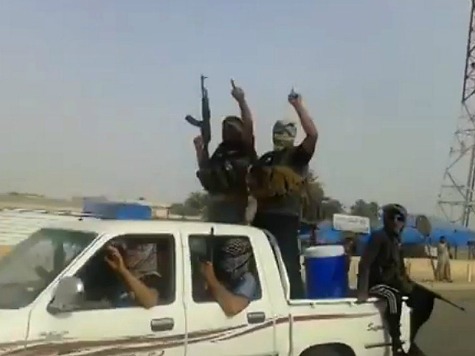Friends of Alan Hennings, the British hostage threatened next with execution by ISIS jihadists, say they offered the terrorist organisation money in return for his release, but were turned down. A fellow volunteer has told the Daily Mail that ISIS seemed to want Hennings for “something else”.
The father of two from Eccles, Greater Manchester, had travelled to Syria with the Worcester based charity Al-Fatiha Global. A taxi driver by trade, he had volunteered to drive an ambulance filled with aid and supplies into the country, crossing the border into Syria late December.
Just hours after his arrival in that country Hennings was kidnapped by ISIS forces. Fellow volunteers have said that the last time they saw him he was smoking a cigarette in the courtyard outside a warehouse, watching the aid cargo being unloaded. “No one knew what was about to happen” one of the volunteers, a friend of Hennings, told the Mail. “I have never been witness to anything like that in my life.”
A group of three or four jihadists arrived at the warehouse minutes after the convoy had arrived, and declared “We are the state.” The men were then taken to three rooms by the kidnappers, who hit Hennings in the face and demanded the volunteers’ passports.
“They were accusing us of being spies, asking what we were doing there. It was only when local Syrians stepped in and said we were with a charity and we were helping local people that it calmed down a bit,” the friend said.
“I recall some guys saying don’t worry, they are just getting him checked out to make sure he’s with the charity and for a little while everyone was reassured but only five or six hours later they said they weren’t going to release him.”
The convoy was carrying hundreds of thousands of pounds in cash, meant for Syrians refugees, and it was that money that they offered to the kidnappers. The group stayed on in Syria for three or four weeks, travelling to the border town of Al-Dana just ten minutes from the Turkish border to negotiate Hemming’s release, and were helped in their efforts by a number of opposing factions, including the Al-Nusra Front, an Al-Qaeda affiliated organisation operating in Syria.
“They offered the money. Some weren’t happy handing it over because it wasn’t meant for ISIS, it was meant for the Syrian people,” said the friend, who wants to remain anonymous. “The kidnappers weren’t interested, they didn’t want it. It seemed that they didn’t care about money, they probably had something else planned already.”
At one point the kidnappers considered releasing Hennings in exchange for a prisoner held by Americans and thought to have been captured in Iraq, but that too came to nothing. The group were unable to visit Hennings whilst in Al-Dana, and did not see him again until Isis released the video of the beheading of British aid worker David Haines on Saturday night. Continuing with their pattern of identifying their next victim at the end of each beheading video, Hennings appears in the video after Haynes has been killed.
“It was like a bus hit me,” the friend said. “I feel for his family. When you see someone you know being threatened like that, you just can’t describe it.”
The American and British governments do not negotiate payments in exchange for hostages, to prevent encouragement of hostage taking. However, other European countries have offered cash sums in return for their citizens. Yesterday the Italian government admitted that in some cases it had paid ransoms, but the deputy foreign minister Lapo Pistelli insisted that “In most cases where we have succeeded in intervening positively there was no money payment,” adding that rigid policies on non-payment were “a little mechanical.”
The Charity Commission are questioning why such a large cash sum was being carried by the charity, and are now investigating the financial management of Al-Fatiha Global.

COMMENTS
Please let us know if you're having issues with commenting.